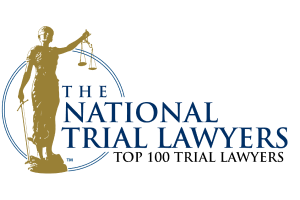Warning Signs
Failure to Post Proper Warning Signs
Under Georgia premises liability law, owners and managers must maintain their property in a reasonably safe condition. If a hazardous situation exists that is potentially unexpected or unobvious to people on the premises, such as uneven pavement, a step-down or step-up, or a spill, the person in charge of the property is responsible for warning people about the danger, as well as indicating the nature of the danger. If a property owner or manager fails to warn of a dangerous condition, he or she may be liable for any injuries resulting from the failure to post proper warning signs.
Situations Requiring Warning Signs
The purpose of a warning sign is to put people on notice that a potentially dangerous condition exists on the premises they are entering or occupying. Therefore, a warning sign is only effective if it clearly lets people know of the potential hazard. If a sign is too small, placed in a hard to see location, or is unreadable, it may not be sufficient, as it does not serve its intended purpose. Situations that may require a warning sign include:
- Spills in store aisles
- Oil slicks and spots
- Ice and snow outside an entryway
- An incline, step-up, decline, or step-down
- Uneven or cracked pavement
- Damaged stairs
- Missing or broken handrails
- Recently mopped floors
- Low ceilings or doorways
In any of these situations, a warning sign should be put up to let the public know of the hazardous condition. If appropriate signs are not displayed and the situation is not repaired or remedied in a timely manner, businesses, property owners and their insurance companies can be held responsible when injuries occur.
When Warning Signs Are Insufficient
While a warning sign is helpful to put people on notice of a dangerous condition until it can be fixed, there are situations in which a warning sign is insufficient. These are cases where there is still an unreasonable risk of an accident or injury occurring even if there is a warning sign and the public has knowledge of the condition.
For example, if a pathway covered in ice is the only way for people to get from a parking lot to a building, many people are still likely to attempt using the pathway notwithstanding a sign warning of the ice. In these circumstances, an injury victim may assert that obviousness, warning, and even knowledge was not enough to prevent accidents, as the pathway was still held open and necessary for use.
Contact the Georgia Premises Liability Lawyers at KWF
If you sustained an injury because of a failure to post proper warning signs or because warning signs were insufficient to prevent a dangerous premises condition, contact the legal team at Katz Personal Injury Lawyers in Atlanta at 404-460-0101. As part of a free initial consultation, we can evaluate your options for recovering compensation for your injuries. We represent clients across the state of Georgia, including Atlanta, Marietta, Decatur, Roswell and Macon.







